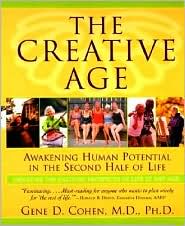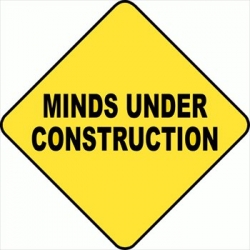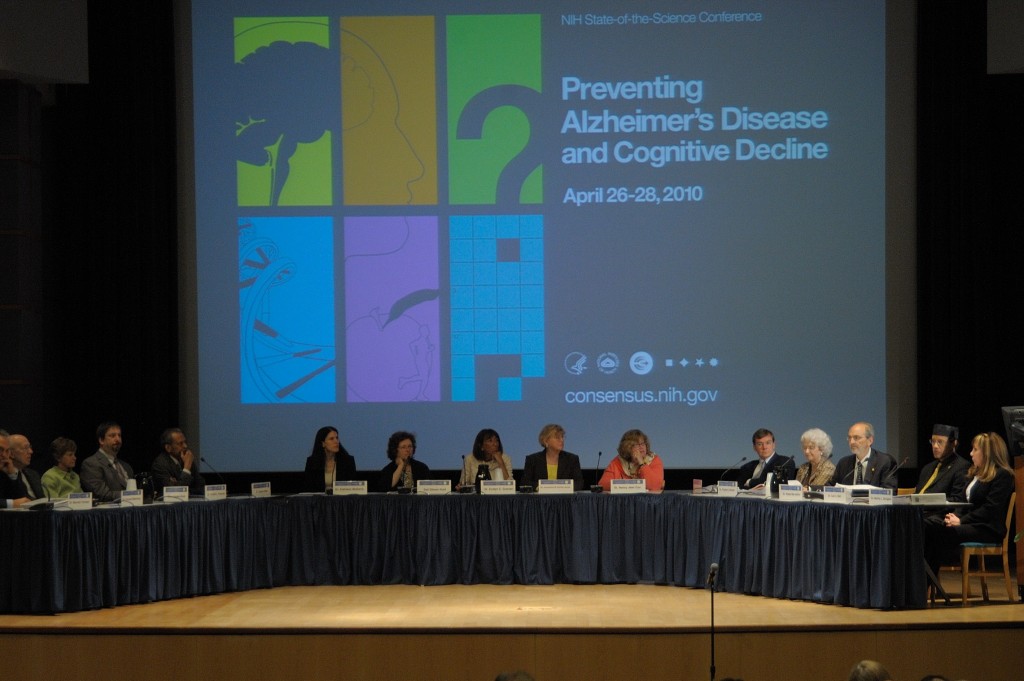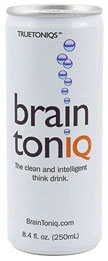2nd Language Boosts Cognitive Control & Reserve
 According to research recently reported in the Wall Street Journal, Building a More Resilient Brain, you can improve thinking and brain health by learning a new language. There is some evidence that learning a second language can improve your cognitive control (stop paying attention to one thing and focus on another) and may stave off the effects of dementia for several years by building up cognitive reserve. Unfortunately, it is not know when in life it is best to learn the language and if you need to use it daily to get these benefits.
According to research recently reported in the Wall Street Journal, Building a More Resilient Brain, you can improve thinking and brain health by learning a new language. There is some evidence that learning a second language can improve your cognitive control (stop paying attention to one thing and focus on another) and may stave off the effects of dementia for several years by building up cognitive reserve. Unfortunately, it is not know when in life it is best to learn the language and if you need to use it daily to get these benefits.
Learning a second language is a major undertaking but does promise to improve brain function and cognitive performance. Very interested to hear from readers that have learned a second language and believe it has had brain boosting effects.
Categories: Child, Cognitive Decline, Memory and Learning, Mental Focus, Older Adult, Training Tags:
Drinks Spiked With Cognitive Enhancers
 There are a growing number of drinks – flavored, caffenitated, organic and high-energy that have been specially formulated to improve your brain function and cognitive performance.
There are a growing number of drinks – flavored, caffenitated, organic and high-energy that have been specially formulated to improve your brain function and cognitive performance.
Take for example, the brand new product Nawgan. It was developed by a brain scientist, comes in berry flavor (caffeintate or not) and claims:
“The Nawgan formula supports memory and thinking skills in four ways. First, the lycopene in the beverage provides anti-inflammatory protection. Second, the natural vitamin E provides powerful anti-oxidant protection. Third, the alpha-glyceryl phosphoryl choline and citicoline (cognizin®) helps to increase acetylcholine levels in the brain (acetylcholine is critical for memory and thinking skills). Fourth, the citicoline also helps to provide structural support to brain cells, (phospholipids).”
You can buy it online for the price of an energy drink but must buy a case.
For a different approach, consider Brain Toniq that bills itself as botanical-based “think drink” designed to improve mental focus. An antidote to brain fog.
Another alternative is Focus Up, a prepackaged powder you can add to a bottle of water.
Interested to hear from readers that use drinks specially formulated to boost brain function and cognitive performance.
Categories: Cognitive Decline, Diet, Mental Focus Tags:
Nuts Known to Improve Cognition
 Posit Science, a leading provider of brain training software, has a interesting post on Nuts for Brain Health. They claim:
Posit Science, a leading provider of brain training software, has a interesting post on Nuts for Brain Health. They claim:
- Walnuts, almonds and hazelnuts have scientific studies that support claims for brain boosting effects
- Peanuts have preliminary evidence that support their role in brain health
- Other nuts that are often mentioned for brain health including pecans, chestnuts and cashews lack published scientific studies.
A useful summary for those considering including nuts in a Next Brain diet. Interested to hear from readers that eat nuts to improve brain function and cognitive performance.
Categories: Cognitive Decline, Diet, Memory and Learning Tags: vitamins
Berries Help to Unclog Your Brain
 New research shows that blueberries, strawberries and acai berries can promote brain health. They appear to work by restoring overactive microglia cells that are responsible for removing biochemicals that would otherwise interfere with brain function.
New research shows that blueberries, strawberries and acai berries can promote brain health. They appear to work by restoring overactive microglia cells that are responsible for removing biochemicals that would otherwise interfere with brain function.
The researchers suggest eating whole fruits to get the maximum effect. Interested to hear from readers that eat berries for brain health. What berries do you eat and why?
Categories: Cognitive Decline, Diet, Memory and Learning Tags: fruit
Cognitive Advancement NOT Decline with Age
 The theme behind this blog is that nature gave us the hind brain, mid brain and fore brain, now the Next Brain is up to us. A somewhat playful way of making the claim that we now have enough science, technology and practical insight to implement training programs and lifestyle changes that will significantly impact brain function and cognitive performance. The 80+ posts on this site are just scratching the surface.
The theme behind this blog is that nature gave us the hind brain, mid brain and fore brain, now the Next Brain is up to us. A somewhat playful way of making the claim that we now have enough science, technology and practical insight to implement training programs and lifestyle changes that will significantly impact brain function and cognitive performance. The 80+ posts on this site are just scratching the surface.
One of the most exciting trends that support the prospects of your Next Brain is the recent scientific work suggesting many important cognitive functions actually improve with age. Indeed, there maybe several stages of cognitive development that move us through adulthood and old age. I have blogged on this before but want to encourage you to read Cohen’s book, The Creative Age. It is inspirational at many levels but one of the things that is particularly striking are the examples he gives of major creative contributions made by older adults.
Some examples:
- Freud publishes the Ego and the Id (his major work) at 67
- Stradivaria (or Stradivarious) designed and built his two most famous violins – the Habeneck and the Muntz when he was 92
- Leaky made her most important archeological discovery (hominid footprints that are 3.5 million years old) when she was 65
- Alexanderson was award a patent on the color television reciever developed for RCA when he was 77
- A 65 year old physicist was the first to liquify helium in 1932
- Michelangelo was 72 when he was appointed architect for St. Peters in Rome
These examples are important because they demonstrate creative acts of global importance started and completed by older adults. This is very different from the many examples of older adults that are recognized for creative acts completed during younger years.
Now most of us are not world-class scientists, artisians, inventors or leaders but the message from these examples is still very relevant:
It is possible to continue to develop and use advanced cognitive skills as we age into our 60s, 70s, 80s and even 90s.
 This challenges one of the major myths about the aging brain that shrinks, becomes forgetful, cannot grow new brain cells/connections, loses energy and in more and more cases slides into dementia. Clearly our minds are still under construction.
This challenges one of the major myths about the aging brain that shrinks, becomes forgetful, cannot grow new brain cells/connections, loses energy and in more and more cases slides into dementia. Clearly our minds are still under construction.
Perhaps we will ultimately learn that the decades of later adulthood and old age are in fact just the time and proving grounds we need to build our Next Brains.
Categories: Cognitive Decline, Older Adult Tags: creativity
Brain Challenge HD on Sale for Only $0.99
iPhone and iPad users can get Brain Challenge HD at a discount. If you like this brain teasing approach be sure to check out Brain Challenge 2, 3 and 4 by Gameloft.
Categories: Cognitive Decline, Memory and Learning, Other, Software Tags: games
Phosphatidylserine Improves Thinking in 10 Days
 Phosphatidylserine is a supplement that some claim can stave off cognitive decline in the elderly and boost memory, learning, mood and decision-making in people of all ages. I have seen conflicting studies so I am always on the look out for new ones that are done with great scientific rigor and that might help settle the issue.
Phosphatidylserine is a supplement that some claim can stave off cognitive decline in the elderly and boost memory, learning, mood and decision-making in people of all ages. I have seen conflicting studies so I am always on the look out for new ones that are done with great scientific rigor and that might help settle the issue.
Found one recently that was presented at the 7th Annual International Society of Sports Nutrition Conference. It was a small study but it was double blinded and placebo controlled. You can read about it in, Study Shows PS Use Improves Cognition Prior To Exercise.
Here is the key finding:
“Cognitive performance was measured by the serial subtraction test (SST), a validated method in which subjects repeatedly subtract from 1,579 by intervals of seven. PS supplementation did reduce the time needed for a correct calculation by 21%, reduced the total amount of errors by 38% and increased the amount of correct calculations per error by 42% prior to exercise.”
To achieve this effect athletes took 400 mg a day for 10 days. I don’t think “safe and effective” dose guidelines have been established I have seen other studies and recommendations that use between 300-500mg daily.
I am not advocating the use of this supplement. I am however, interested in hearing from readers that use it. What dose, how long and what kind of benefits or side effects are you experiencing?
Categories: Cognitive Decline, Decision Making, Diet, Manage Emotions, Memory and Learning Tags: smart drugs
Mental Fitness Cards that Really Work
 Couple of years ago I bought a pack of Mental Fitness Cards and started to experiment with them. You get 100 cards that provide very specific activities designed to maintain or even enhance the senses, memory, problem solving, linguistic abilities and numeracy. The cards come in a nice sturdy box and include a booklet that provides an overview and suggestions for how to use the cards.
Couple of years ago I bought a pack of Mental Fitness Cards and started to experiment with them. You get 100 cards that provide very specific activities designed to maintain or even enhance the senses, memory, problem solving, linguistic abilities and numeracy. The cards come in a nice sturdy box and include a booklet that provides an overview and suggestions for how to use the cards.
The cards are geared for seniors but I have found 12 that appear to be very useful in general.
One of my favorites is #91 Sharpen Your Hearing. The activity involves turning the volume down on your TV or talk radio show until you can hear but no longer make out what is being said. You then slowly turn it up until you can just barely but clearly hear what is being said. When you repeat this you should not have to turn it up as much to get words because you are learning to focus your hearing. The card talks about drawing lines a on sheet of paper to measure progress. I did not track with that but do it in the car where my radio gives me a number for the volume setting. This way I can measure progress exactly. I am not recommending that you do this in the car.
I am interested to hear from readers about other card-based mental fitness products and how they are using them.
Categories: Books, Cognitive Decline, Memory and Learning, Older Adult, Perception Tags:
Handful of Pecans a Day for Brain Health?
 Making small lifestyle changes can improve brain function and cognitive performance. Often small changes are easy to do and if you make enough of them they should add up and have significant impact. We have documented a number of such changes on the Next Brain Blog but I am always on the lookout for new scientific studies that might suggest more.
Making small lifestyle changes can improve brain function and cognitive performance. Often small changes are easy to do and if you make enough of them they should add up and have significant impact. We have documented a number of such changes on the Next Brain Blog but I am always on the lookout for new scientific studies that might suggest more.
Take for example a recent study in the journal, Current Topics in Nutraceutical Research, reported on here.
“The study, conducted at the Center for Cellular Neurobiology at the University of Massachusetts Lowell, suggests adding pecans to your diet may delay the progression of age-related motor neuron degeneration.”
The work is being done by the vitamin E (antioxidant) in the nuts. Please keep in mind this is a preliminary study done with mice not people. Fortunately, it turns out the pecans are otherwise good for you with many vitamins and minerals and no cholesterol or sodium.
I am interested to hear from readers on other small-step lifestyle changes they have made to improve brain function or cognitive performance.
Categories: Cognitive Decline, Lifestyle Tags: vitamins
Preventing Cognitive Decline – No Science Yet!
 The state of the science conference sponsored by the National Institute of Heath on Preventing Alzheimer’s and Cognitive Decline is over. You can read an excellent recap in the LA Times or read a draft of the conference statement. For readers of the Next Brain Blog, a key finding is:
The state of the science conference sponsored by the National Institute of Heath on Preventing Alzheimer’s and Cognitive Decline is over. You can read an excellent recap in the LA Times or read a draft of the conference statement. For readers of the Next Brain Blog, a key finding is:
we have not done enough scientific research (large scale population based studies) to know what really works.
But the committee goes on to say:
“Some preliminary research suggests that a few prevention strategies could emerge as helpful, according to the report. These include programs that train people in memory, reasoning and speed of thinking as well as omega-3 fatty acid supplementation, physical activity and a diet low in saturated fat and high in fruits and vegetables.”
We have covered and will continue to cover all of these techniques.
Categories: Cognitive Decline, Older Adult Tags:




